Uncategorized
-
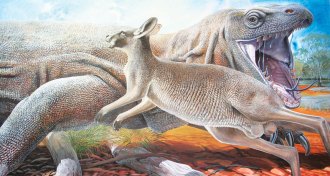 Paleontology
Paleontology‘End of the Megafauna’ examines why so many giant Ice Age animals went extinct
‘End of the Megafauna’ ponders the mystery of what killed off so many of Earth’s big animals over the last 50,000 years.
By Erin Wayman -
 Neuroscience
NeuroscienceLoneliness is bad for brains
Social isolation shrinks nerve cells in the brains of mice, a new study shows.
-
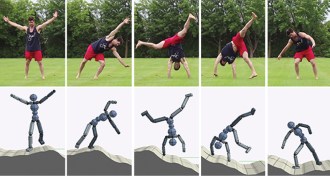 Computing
ComputingVirtual avatars learned cartwheels and other stunts from videos of people
A new computer system that lets animated characters learn acrobatic skills from videos could be a cheaper alternative to traditional motion capture.
-
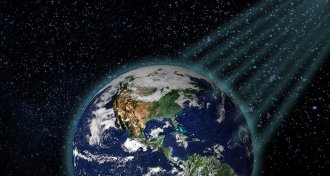 Particle Physics
Particle PhysicsPhysicists measured Earth’s mass using neutrinos for the first time
Counting tiny particles that can zip straight through the Earth reveals what the planet is like on the inside.
-
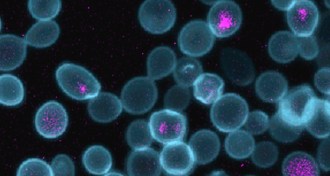 Life
LifeA mash-up of yeast and E. coli shows how mitochondria might have evolved
An engineered partnership between yeast and E. coli suggests one way mitochondria may have evolved.
-
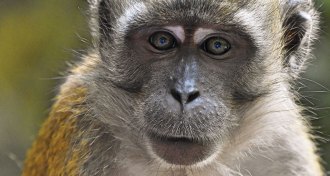 Health & Medicine
Health & MedicineMalaysia is ground zero for the next malaria menace
With deforestation in Malaysia, monkeys and humans are getting closer — and mosquitoes are infecting humans with malaria from monkeys.
By Yao-Hua Law -
 Science & Society
Science & SocietyScreen time to heal, and perhaps to harm
Editor in Chief Nancy Shute reflects on the advances in virtual reality technology and how much time we spend on our computers and smartphones.
By Nancy Shute -
 Materials Science
Materials ScienceQuestions about toxic red tides, and more reader feedback
Readers had inquiries about a new deicing material, harmful algal blooms and more.
-
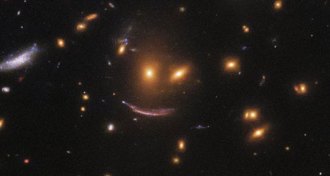 Astronomy
AstronomyHubble has been busy since coming back online
Since getting back to work on October 26, the Hubble Space Telescope has been studying red dwarf flares, among other celestial objects.
-
 Physics
PhysicsA new measurement bolsters the case for a (slightly) smaller proton
The PRad physics experiment has come up with a result favoring a punier proton.
-
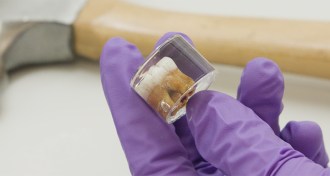 Anthropology
AnthropologyNeandertal teeth reveal the earliest known signs of lead exposure
Chemical analyses of teeth from young Neandertals show that lead exposure in hominids goes back some 250,000 years.
-
 Life
LifeEating less protein may help curb gut bacteria’s growth
A new study in mice and 30 mammal species hints at what controls the types and amounts of gut microbes, which can contribute to health and disease.